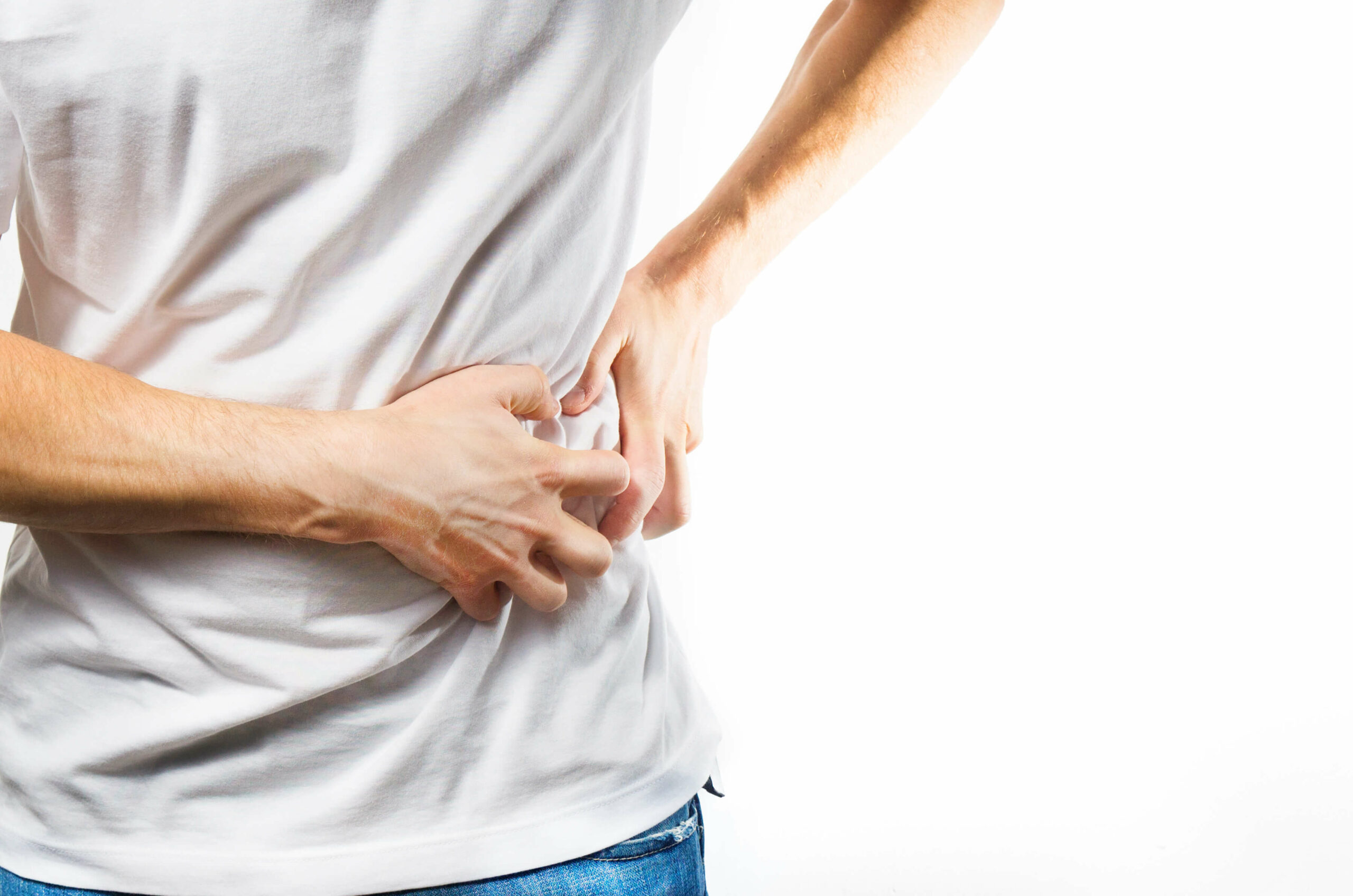
Urolithiasis is the formation of stones, hard deposits of minerals, and salts inside your kidneys. When formed, the stone may stay in the kidney or travel down the urinary tract into the ureter.
If a kidney stone becomes lodged in the ureters, it may block the flow of urine and cause the kidney to swell and the ureter to spasm, causing pain.
Signs & Symptoms
- Lower back or side pain
- Difficulty urinating
- Blood in urine
- Nausea or vomiting
- Cloudy or foul-smelling urine
Risk Factors
Family or personal history
- If you or a family member has had kidney stones, you are more likely to develop a stone. If you’ve already had kidney stones, you’re at increased risk of developing another.
Dehydration
- Excessive sweating or not drinking enough water can increase your risk for kidney stones.
Diet
- Eating a diet high in protein, sodium, and sugar may increase the calcium your kidneys must filter. Consequently, this puts you at a greater risk of developing kidney stones.
Obesity
- High body mass index (BMI), large waist size, and weight gain may change the acid levels in the urine, leading to stone formation.
Surgery and Digestive diseases
- Gastric bypass surgery, inflammatory bowel disease, or chronic diarrhea can cause changes in the digestive process that affect your absorption of calcium and water, increasing the amounts of stone-forming substances in your urine.
Three ways to prevent kidney stones
Drink water throughout the day
- Drinking as much as 3 liters daily will dilute your urine and may prevent stones from forming.
Eat fewer oxalate-rich food
- Moderately consume foods rich in oxalates, like okra, sweet potatoes, nuts, tea, chocolate, black pepper, and soy products.
Choose a diet low in salt and animal protein
- Reduce the amount of salt you eat and choose nonanimal protein sources, such as legumes.
If you are experiencing any signs and symptoms of kidney stones, consult a urologist via Maxicare’s 24/7 Teleconsult Hotline, Videoconsult services powered by the Doctor Anywhere App, or Maxicare Primary Care Clinic (PCC). You may also visit a PCC or request HomeCare for lab tests and diagnostic procedures.







